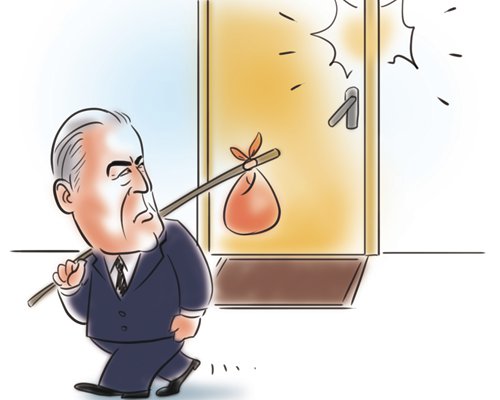
(Photo: Global Times)
US President Donald Trump announced Tuesday with a tweet that he fired Rex Tillerson as secretary of state and would replace him with CIA Director Mike Pompeo. The replacement was not an act of impulse.
Tillerson's departure was unexpected, but not that surprising, as the discrepancies between Tillerson and Trump on diplomacy were obvious. For a president as hard-line as Trump, he has his own foreign policy orientations. Therefore, he needs a secretary of state who can carry out his policies rather than giving advice. He would not tolerate one who holds different opinions or even goes against him.
On a number of issues such as North Korea, Iran, climate change, Latin America and Russia, the discrepancies between Tillerson and Trump were prominent.
Especially on the North Korean nuclear issue, Trump has advocated applying maximum pressure onto Pyongyang and stepped up saber-rattling against Pyongyang several times. Tillerson adopted a milder approach and advocated negotiations, but was sneered at by Trump publicly.
Such disagreements between Tillerson and Trump, both of whom are core figures in US foreign policy, made their relationship worsen. Tillerson's departure was only a matter of time. Trump simply told reporters that he and Tillerson "disagree on things."
To better implement Trumpism in the realm of diplomacy, the US president needs a secretary of state who shares his goals and obeys him, because this matters a lot to Trump's political prospects. Now that Trump has kicked off his 2020 re-election campaign, he has to make achievements during his tenure.
In a superpower like the US, diplomacy matters a lot to a president's performance. Given the diplomatic disagreement with Tillerson, Trump has gradually realized that he must replace him with someone else should he make any diplomatic achievements.
But Tillerson did not want to leave or resign by himself. This forced Trump to take the initiative. Tillerson's departure means there will be little room for opinions that differ from Trumpism in diplomacy and Trumpism will continue to prevail.
Trump spoke highly of new Secretary of State Pompeo. He said Pompeo has "tremendous energy" and "tremendous intellect" and they are "always on the same wavelength." This indicates that Pompeo will stick to Trumpism and implement Trumpism in the diplomatic sphere.
The 55-year-old Pompeo was born to a traditional middle-class family. He graduated from West Point and Harvard University and is experienced in military, business and politics. His military background and his service in the Tea Party mean that he will have a tough foreign policy which caters to Trump's demands. Although his diplomatic approaches have not been shown yet, his toughness on the North Korean and Iranian nuclear issues is similar to that of Trump's.
A hawkish secretary of state means US foreign policy will be more aggressive. Does it pose a new challenge to Sino-US relations? Bilateral relations have remained smooth since Trump took office.
Despite their disagreement on trade issues, China and the US have cooperated actively on a number of issues such as the North Korean nuclear problem and their strategic discrepancies have been put under control.
But it is worth noting that the US has tended to act tough on China. The recently released National Security Strategy and National Defense Strategy have called for a tough approach on China. Even ousted Tillerson became tougher on China recently.
This means such toughness has become a consensus within the US political circle. While competition and cooperation exist in China-US relations, competition between the two will be more prominent. The new US secretary of state will make this bilateral relationship more difficult, but this does not mean confrontation between the two will escalate. After all, both competition and cooperation will feature in future China-US relations, and the relationship will not drastically change simply due to the alteration of secretary of state.


